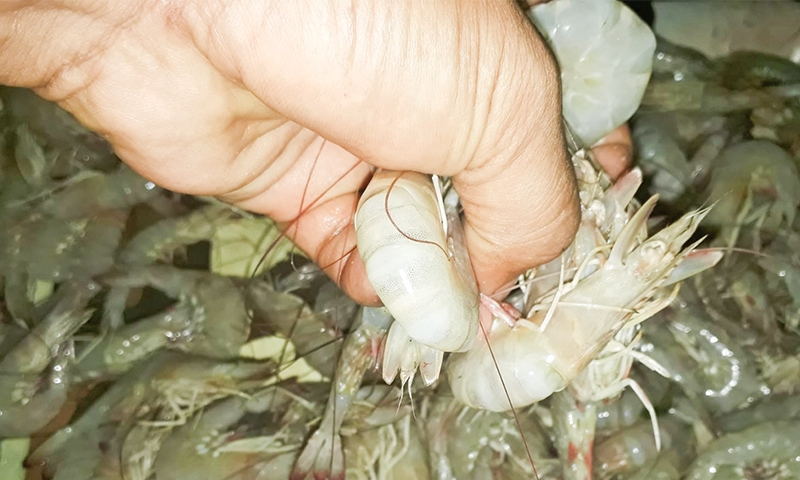Poverty cited as reason for violating shrimping ban
Many shrimp vendors say poverty and unemployment are driving them to engage in shrimping despite knowing that it is an illegal activity. Three boats carrying shrimp weighing around a tonne were seized by the Coast Guard on Wednesday. Legal proceedings were also taken against ten individuals for violating the shrimping ban.
Speaking to Tribune, a youth, who doesn’t want to be identified, said, “I have no job since last year. I know it is illegal to catch and sell shrimp as there is a ban until the end of July. But what matters most to me is feeding my children.” “I was suffering without a job and it was one of my friend who advised me to try shrimping. Now this is my livelihood, though its illegal.” But there are also others who violate shrimping ban to earn quick money, he added.
The ban is one of the measures taken by the government to protect marine resources of the Kingdom. “The authorities should give us jobs first and end our poverty. Poverty is the main reason behind all these illegal acts. “Now we are getting BD1.5 a kilo for large shrimp. Despite ban plenty of shrimp reaches the market. Many engage in the illegal activity as there is no money and jobs with them.”
The fisherman said that a good number of expat workers were also involved in violating the ban.
“Many fishermen are giving their boats to expat workers, encouraging them to violate the shrimping ban. Coast Guard personnel generally don’t turn suspicious on seeing expat fishermen and hence they get away, bringing large quantities of shrimp and flooding the market.”
Shrimping and selling fresh prawns are banned on the basis of a resolution adopted by Works, Municipalities Affairs and Urban Planning Minister Essam Khalaf. The resolution mentions that possessing tools and equipment used to catch shrimp is illegal during the six-month ban period, while warning violators of strict legal actions. Bahrain annually bans shrimping for a period of four to six months to protect marine resources and allow the creatures to reproduce. Similar decisions are applied in other countries in the region such as Kuwait.
Related Posts

